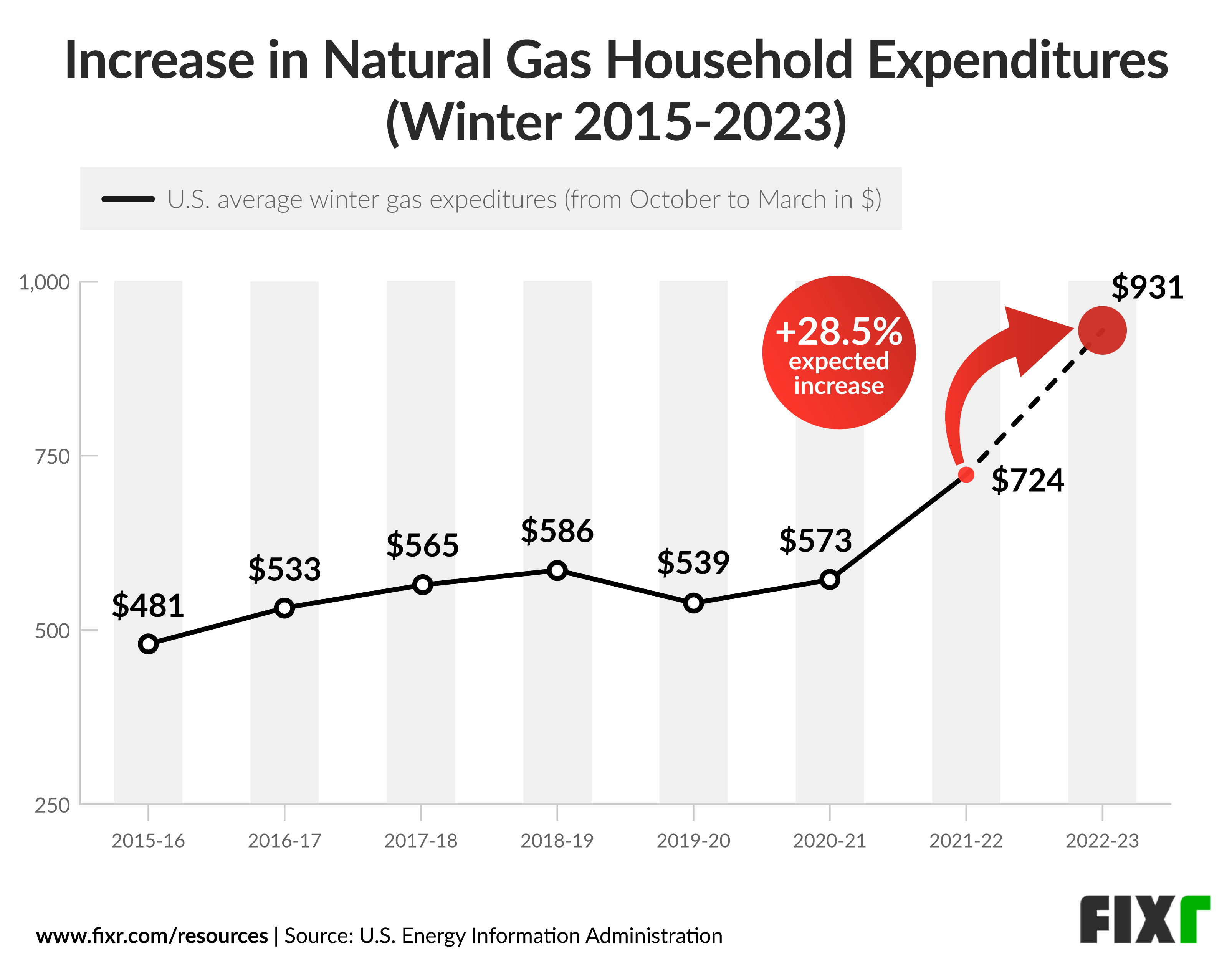Are you scratching your head every month when your gas bill arrives? You’re not alone.
Many people like you are puzzled by the sudden spike in their gas expenses. It feels like you’re paying more and getting less warmth in return. Understanding why your gas bill is so high can be a game-changer for your wallet.
Imagine the relief of knowing exactly what’s causing those extra charges. You’ll be able to take control and make simple changes to lower your bill. Ready to find out what’s driving up those costs and discover practical solutions? Let’s dive into the reasons behind your high gas bill and explore easy steps to cut it down.
Common Causes Of High Gas Bills
High gas bills often stem from inefficient appliances or poor insulation. Leaks in the heating system can also increase costs. Additionally, using gas during peak times might raise the bill.
Are you puzzled by your high gas bill? You’re not alone. Many people face unexpectedly steep bills and wonder what’s driving the costs. Understanding the common causes can help you take action to reduce your expenses. Let’s dive into the key factors that can lead to increased gas bills.
Usage Patterns And Habits
Do you often crank up the heater during chilly nights? Your usage patterns can dramatically impact your gas bill. Think about how often you use gas-powered appliances. Are you mindful when cooking or heating water? Even small changes in habits, like turning off the heater when not needed, can lead to savings. Consider your schedule. If you’re home more often, you might naturally use more gas. It’s easy to overlook how these everyday choices add up. Are you ready to adjust your habits for a lower bill?
Seasonal Variations
Have you noticed your gas bill spikes during winter months? Seasonal changes can significantly affect your gas consumption. Cold weather demands more heating, which means higher usage. Conversely, warmer months might offer a reprieve. Think about how you can prepare for these fluctuations. Insulating your home better can keep the warmth in, reducing the need for constant heating. How can you make your home more energy-efficient as the seasons change?
Faulty Appliances
Is your furnace making strange noises? Faulty appliances can be silent culprits behind high gas bills. If your heater or stove isn’t functioning efficiently, it could be using more gas than necessary. Regular maintenance checks can catch these issues early. Sometimes, the problem isn’t visible. An old water heater might be eating up energy unnoticed. Are you paying attention to the signs your appliances might be giving? Taking action could save you money in the long run. By understanding these common causes, you can take practical steps to manage your gas bill. Are you ready to make the changes needed to see a difference in your monthly expenses?

Credit: www.fixr.com
Examining Rate Structures
Ever wondered why your gas bill seems unusually high? Examining rate structures can reveal hidden costs and fees. Understanding these details helps identify ways to manage your energy expenses better.
Understanding why your gas bill is so high can be a real puzzle. One significant factor is the rate structure of your gas plan. Different rate structures impact how much you pay each month. Let’s dive into some common types and see how they might be affecting your wallet.
Fixed Vs. Variable Rates
Fixed rates mean your gas price stays the same over the contract period. This can be great for budgeting because you know exactly what to expect each month. But if gas prices drop, you miss out on savings. Variable rates can fluctuate with market changes. If you enjoy taking risks, this might work for you when prices fall. However, it can lead to high bills when prices spike unexpectedly. Imagine planning a vacation only to find your gas bill has eaten into your travel budget.
Tiered Pricing
Tiered pricing charges you different rates based on usage levels. The more gas you use, the higher the rate you might pay. It’s like a tiered cake; the higher layers cost more. This structure can be confusing. You might think you’re saving money, only to see a hefty bill because you’ve crossed into a higher tier. Picture this: a cold snap hits, and you crank up the heat, only to be shocked by your bill. How does your current rate structure affect your bill? Have you explored alternatives that might save you money? Understanding these nuances can help you make smarter choices.
Identifying Hidden Fees
Understanding your gas bill involves more than just the amount you pay monthly. Hidden fees could be the reason your bill seems unexpectedly high. These fees are often overlooked but can significantly impact your total cost. Identifying them is crucial to managing your expenses effectively.
Delivery And Service Charges
Gas delivery doesn’t come free. Companies charge for transporting gas to your home. This fee covers infrastructure and maintenance costs. Sometimes these charges are not clearly listed. They might appear under different names on your bill. Carefully inspect your bill to spot these fees.
Environmental Surcharges
Environmental surcharges fund eco-friendly initiatives. These can include carbon reduction projects. Your bill might include these without clear explanation. It’s vital to know what these charges support. Review your bill to understand these additional costs. Knowing their purpose can help you budget better.

Credit: www.fixr.com
Impact Of Insulation And Home Efficiency
Many wonder why their gas bills are high. Home insulation and efficiency play key roles. Poor insulation allows heat to escape. This causes your heating system to work harder. The harder it works, the more gas it uses.
Home efficiency depends on various factors. Insulation quality, window seals, and door seals are among them. Improving these can reduce energy costs.
Quality Of Insulation
Insulation acts as a barrier. It keeps heat inside during winter. Without proper insulation, warmth escapes easily. This means your heater runs more. The more it runs, the higher the gas bill.
Check your attic, walls, and floors. These areas benefit most from insulation. Make sure your home is well-insulated. This can lower your heating costs significantly.
Window And Door Seals
Windows and doors are common culprits of heat loss. Gaps allow cold air in and warm air out. This makes your home colder. Your heating system compensates by using more gas.
Inspect your windows and doors regularly. Ensure the seals are intact. Weatherstripping can help. It provides a tight seal to prevent air leaks.
Sealing these gaps is a cost-effective method. It can significantly reduce your gas bill. Simple fixes often have big impacts on efficiency.
Behavioral Adjustments To Reduce Costs
Understanding why your gas bill is high can be frustrating. Sometimes, simple behavioral adjustments can make a big difference. Small changes in your daily habits can lead to significant savings. By being mindful of how you use energy, you can cut costs without sacrificing comfort.
Efficient Heating Practices
Keep your thermostat at a consistent temperature. This avoids energy spikes. Use curtains to block drafts and keep heat inside. Wear warm clothing indoors to reduce heating needs. Close doors to rooms you don’t use often. This keeps heat focused where needed. Consider using a space heater for small areas instead of heating the whole house.
Smart Thermostat Usage
Smart thermostats can help manage your heating efficiently. Program them to lower temperatures when you’re asleep or away. Use the app to adjust settings remotely if plans change. This ensures you’re not heating an empty home. Some models learn your habits and adjust automatically. Check for rebates on smart thermostats to offset costs.
Evaluating Appliance Efficiency
High gas bills often stem from inefficient appliances. Old or malfunctioning heaters consume more energy, increasing costs. Regular maintenance and upgrading to energy-efficient models can help reduce these expenses.
Understanding why your gas bill is skyrocketing can be frustrating. One vital aspect to consider is appliance efficiency. Appliances that are outdated or poorly maintained can consume more energy than necessary, leading to higher bills. By evaluating the efficiency of your appliances, you can make smart choices to reduce your energy consumption and save money.
Age And Maintenance Of Appliances
Older appliances often lack the energy-saving features found in newer models. If your furnace or water heater has been around for decades, it might be time to consider an upgrade. Think about that old stove from your grandma’s house; charming, but not efficient. Regular maintenance also plays a crucial role. Dust and grime can accumulate, reducing efficiency. Have you ever checked the filters in your heating system? A simple cleaning could make a big difference in your energy bill.
Energy Star Ratings
Energy Star ratings provide a reliable measure of appliance efficiency. A high rating means the appliance uses less energy, which translates to savings on your bill. If you’re shopping for new appliances, look for this label. Imagine buying a refrigerator that keeps your groceries fresh without guzzling gas. It’s like investing in a future where your wallet is happier. Take a moment to assess your current appliances. Do they measure up? Making these evaluations can lead to substantial savings. Evaluating appliance efficiency is not just a chore; it’s an opportunity. How much could you save just by checking a few ratings or doing routine maintenance? The answer might surprise you.
Exploring Alternative Energy Sources
High gas bills can be a burden on your budget. Exploring alternative energy sources offers a promising solution. These energy options can be more efficient and eco-friendly. They might reduce your reliance on gas. This transition not only saves money but also benefits the environment. Let’s explore some viable options.
Solar Energy Options
Solar energy uses sunlight to produce electricity. Solar panels can be installed on rooftops. They convert sunlight into usable energy. This energy can power your home appliances. Over time, this reduces your dependence on gas. The initial cost might seem high. But, solar energy can lead to long-term savings. It also helps in reducing carbon footprints.
Geothermal Heating
Geothermal heating uses the earth’s heat. It provides a consistent energy source. This system works efficiently in all weather conditions. Geothermal systems require less maintenance than traditional systems. They can also last longer, providing more value. By using this energy, you reduce your gas usage significantly. It’s a sustainable choice for many homeowners.

Credit: www.retrofoamofmichigan.com
Frequently Asked Questions
How Can I Reduce My Gas Bill?
Check for leaks. Insulate your home. Use energy-efficient appliances. Lower thermostat settings. Consider alternative heating sources.
What Causes Sudden Spikes In Gas Bills?
Cold weather increases heating needs. Old appliances consume more energy. Leaks waste gas. Check for billing errors.
Are Old Appliances Affecting My Gas Bill?
Yes, old appliances often use more energy. Consider upgrading to newer, energy-efficient models to save money.
Do Gas Companies Charge Hidden Fees?
Some companies may add fees. Carefully review your bill. Contact your provider for clarification if needed.
How Does Insulation Impact Gas Bills?
Insulation keeps heat in, reducing energy needed. Proper insulation can lower your bills significantly during cold months.
Conclusion
High gas bills can surprise anyone. Simple steps can reduce costs. Check for leaks or drafts around your home. Insulate windows and doors for better efficiency. Regular maintenance of heating systems helps too. Use energy-efficient appliances whenever possible. Small changes make a big difference over time.
Monitor your usage closely. Change habits to save money on gas. Stay aware of rates and billing cycles. Understanding these factors helps control expenses. Remember, saving money is within reach. With careful planning, your gas bill can decrease. Enjoy a warmer home without breaking the bank.
Keep exploring ways to save.





